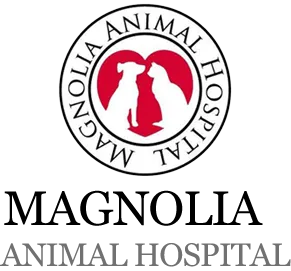Top 5 Signs Your Pet Needs a Vet Visit: Don’t Wait Until It’s Too Late
- Magnolia Animal Hospital
- Oct 3, 2024
- 2 min read
Updated: Oct 22, 2025
As pet owners, we all want our furry companions to live long, happy, and healthy lives. However, pets can't always communicate when something is wrong. Knowing when to schedule a vet visit is key to catching potential health issues before they become serious. Here are the top five signs your pet needs to see a vet—and why you shouldn’t wait until it’s too late.

1. Sudden Changes in Eating or Drinking Habits
If your pet has stopped eating or drinking, it’s a major red flag. A sudden loss of appetite can indicate several underlying issues, from gastrointestinal problems to infections, dental disease, or even serious conditions like kidney disease or cancer. On the other hand, increased water consumption could signal diabetes or kidney disease. If your pet's eating or drinking habits change significantly, it’s time to consult your vet.
2. Unusual Lethargy or Fatigue
Is your usually playful dog or energetic cat suddenly spending more time sleeping or avoiding activities? Lethargy can be a symptom of various issues, including infections, metabolic disorders, or even heart disease. While some tiredness may be normal after a busy day, extreme fatigue that lasts more than a day should not be ignored.
3. Vomiting, Diarrhea, or Changes in Stool
Occasional vomiting or diarrhea might be normal for pets, but frequent occurrences can be a sign of something more serious, such as gastrointestinal issues, food allergies, or infections. Additionally, changes in the appearance of stool—like blood, mucus, or a black, tarry consistency—can indicate internal problems that require immediate attention. Always monitor your pet’s bathroom habits and contact your vet if something seems off.

4. Persistent Scratching or Skin Issues
Excessive itching, licking, or biting at the skin could signal allergies, skin infections, or parasites like fleas and ticks. Left untreated, these conditions can worsen and lead to hair loss, skin infections, and significant discomfort for your pet. Regular vet visits can help identify the cause and provide relief before it becomes a bigger problem.
5. Coughing, Sneezing, or Breathing Difficulties
Just like humans, pets can suffer from respiratory issues. Occasional sneezing or coughing is usually nothing to worry about, but persistent symptoms can point to conditions like respiratory infections, allergies, or even heart disease. If you notice your pet is having difficulty breathing, wheezing, or showing any signs of respiratory distress, it's crucial to get them to the vet right away.
Don’t Wait Until It’s Too Late
Catching health issues early can make a huge difference in your pet’s recovery and quality of life. If your pet is showing any of these signs, it’s important to act quickly. At Magnolia Animal Hospital, we’re committed to providing the best care to keep your furry friends healthy and happy.




